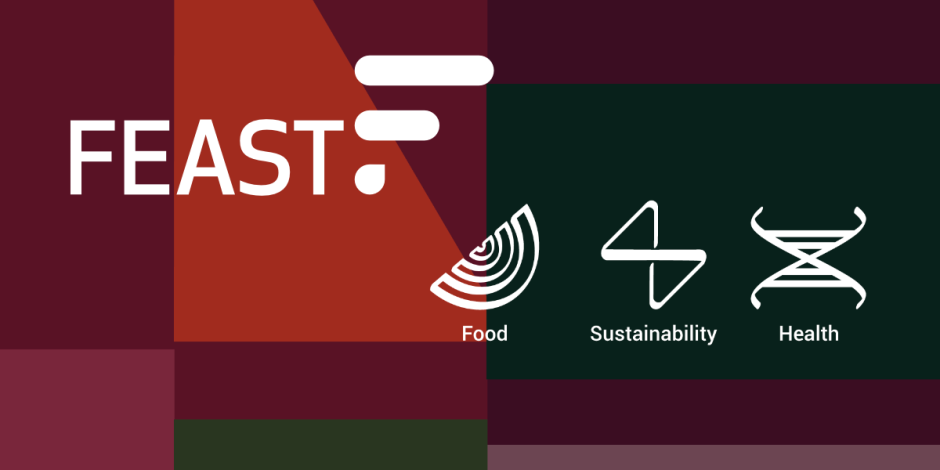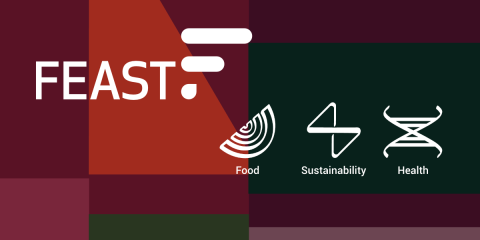
FEAST (Food systems that support transitions to hEalthy And Sustainable dieTs), a 5-year Horizon Europe project, aims to transform European food systems from the current 'Lose-Lose-Lose-Win' model, benefiting only big food corporations at the expense of the environment, health, and public sector, into a 'Win-Win-Win-Win' model. This shift would bring gains for people, the planet, the public sector, and the private sector. To achieve this, FEAST employs a multi-actor approach, crucial for empowering all food system players with the necessary knowledge. Therefore, while the project covers various dimensions, it centres around open science practices.
The adoption of open science practices isn't a recent development, yet not all implement these principles, often to safeguard their data from misuse. It's crucial to realize that embracing open science or adhering to FAIR principles doesn't equate to freely exposing every detail. Rather, it involves a balanced approach: making the research data as open as possible and as closed as necessary. Hence, in FEAST, we adhere to this philosophy, ensuring that knowledge is shared throughout every phase of our research and innovation process, spanning various fields of study, without compromising on the integrity of the data.
This article delves into how FEAST's research and innovation community implements FAIR principles throughout the project's lifecycle. The aim is to inspire other projects to adopt open science practices, benefiting both the scientific community and society.
- Embracing Open Licensing Models: FEAST website uses the Creative Commons Attribution 4.0 International License, defined by the Open Knowledge Foundation. The licensing model is applied to the publications, content, data and code available on the website. This license fosters sharing and adaptation while emphasizing the importance of appropriate credit, license acknowledgment, and disclosure of modifications by users.
- Accessible Material on the FEAST Website: The FEAST website operates in harmony with FAIR principles, housing critical project-related information, including achieved and upcoming milestones, research articles, event details, and other relevant data. The Resources section provides downloadable materials catering to diverse multidisciplinary applications. This repository aids in knowledge dissemination, collaboration, transparency, archiving project-related content, and offers stakeholders easy access to valuable project resources.
- Improving Accessibility via Metadata: Metadata acts as descriptive tags, aiding in categorizing and delineating research materials. These elements encompass various details like research titles, author information, publication dates, keywords, and abstracts. On the FEAST website, metadata is incorporated to enhance discoverability and accessibility, facilitating efficient information retrieval, knowledge dissemination, and collaboration within academic and scientific communities.
- Making Research Outputs Accessible: As FEAST progresses through testing and implementation phase, it will generate diverse research outputs like figures, models, workflows, software, and data. These outputs will be openly accessible and machine-readable, aligning with the EC strategy on Web of FAIR Data and Services to interlink data spaces. Employing persistent identifiers (PID) and partner Git repositories like GitHub or GitLab will ensure traceability and accessibility for the developed software and code.
- Reliance on Trusted Data Repositories: FEAST places its trust in Zenodo, a crucial data repository within the OpenAIRE (Open Access Infrastructure for Research in Europe) initiative, ensuring the preservation, quality assurance, and accessibility of research data. Current research plans, including FEAST DMP, DEC plans, and stakeholder mapping guidance, are available on Zenodo, with more plans set to join the platform as the project progresses. FEAST cloud services (i.e., model exploitation, data analysis, exploitation tool kit) will be made publicly available over the EOSC marketplace, a platform designed to facilitate the sharing, discovery, and reuse of digital resources, services, and tools for research and innovation across Europe. It serves as a centralized hub where researchers, scientists, institutions, and businesses can access and exchange a wide range of resources necessary for their work.
- Publicly Accessible Scientific Publications: Throughout the project's course, numerous scientific publications from the thirty-six FEAST partners will be shared on preprint platforms, wherever possible (i.e., as long as the target journal allow preprint publishing). At least ten publications will be submitted in Open Research Europe (ORE). Further, articles will be published in open access (OA) journals linked with ORCID iD. Outputs and findings from our work will also contribute to openly accessible Lancet publications (Lancet Health and Climate Change countdown, EAT Lancet 2.0).
In summary, for any new project embracing FAIR data principles, it's essential to create a comprehensive DMP and house it, along with other plans, in a trusted repository like Zenodo. This step ensures accessible and secure data availability. Additionally, establish precise metadata standards for consistent data description. Plan for data sharing and choose suitable licenses. Including a download section on the project website promotes data transparency. Ensure that the data formats comply with recognized standards for compatibility. Continuous monitoring of FAIR principles and fostering collaboration via open access publishing are key facets for successful implementation.
Safeguarding project data is crucial, yet comprehensive knowledge sharing and adapting data are vital in the research community. Incorporating open science practices into the project life cycle fosters transparency, reproducibility, and collaboration, benefiting both the project and the broader scientific community. This influences data handling, sharing, and dissemination, cultivating openness and advancing science and research. We hope this article will navigate our fellow project researchers towards better understanding of implementing open science practices throughout their project lifecycle.
Institutions: FEAST Consortium
Project duration: 5 Years
Website: feast2030.eu
LinkedIn: FEAST LinkedIn
Twitter: FEAST Twitter
Newsletter: FEAST Newsletter
Image source: FEAST


